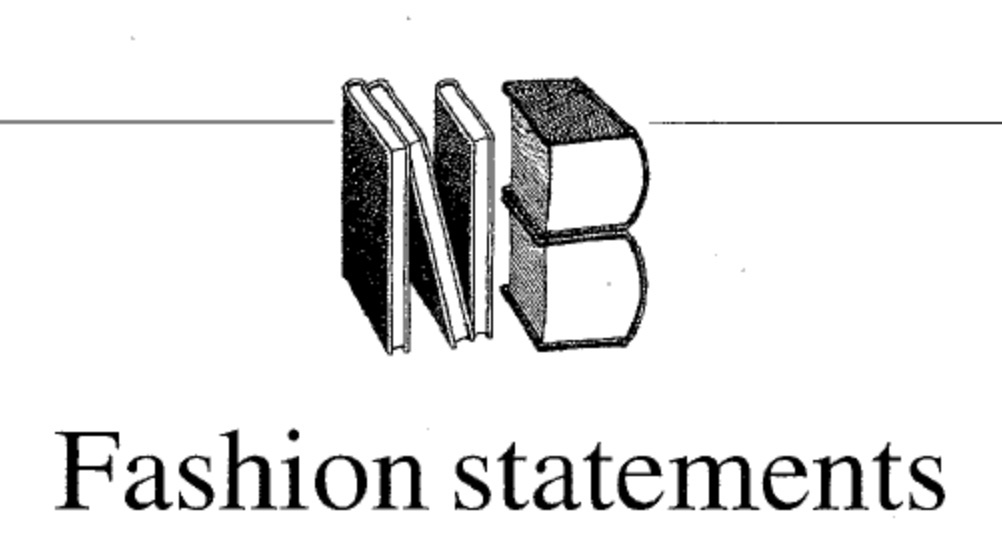IN PRAISE OF JAMES CAMPBELL
For many years my favourite literary column was NB, the weekly back page of the TLS, written by an entity known as ‘J.C.’ I forget exactly when I learned that J.C. was James Campbell, an editor on the TLS and author of several books, including studies of James Baldwin, the Beats, and postwar literary Paris, but it was years after I had become a devoted reader of his column. NB, short for the Latin imperative nota bene, was a cool, spiky miscellany of literary observations and curiosities. International in scope but unmistakably written from London (if not so obviously penned by a Scot), NB kept an eye on little magazines from all over, literary prizes and festivals, literary feuds, literary ethics, eccentric anthologies, questions of English usage, and the history of the TLS itself. NB came to the end a few years ago, when J.C. found himself among several editors downsized by News Corp., owner of the paper since 1981. Now Campbell is publishing a collection, NB by J.C.: A Walk Through the Times Literary Supplement, this spring with Paul Dry Books. His introduction, a testament in the ongoing struggle against philistinism, appeared last week in the Hudson Review. It’s full of lore about the TLS and its storied contributors, among them Virginia Woolf; reflections on composing a weekly column, which emerges as a test of endurance, versatility, and compositional quickness; notes on the experience of working under successive editorial regimes as well as the Murdoch super-regime; and remarks on the correspondence a popular and sometimes esoteric literary column can generate. The NB, which was started by ‘D.S.’ (the critic David Sexton) in 1991, was helmed by J.C. from 1997 to 2020, carries on now in the hands of M.C., whose identity I have yet to investigate.
AN IRISH EVENING
I will be interviewing Colm Toibin about his essay collection A Guest at the Feast Wednesday night, 7 pm EST, at 192 Books.
SNEAK PREVIEW
I have joined the cast of a third play by Matthew Gasda, reprising my role from Dimes Square as Dave. The play is called Afters, and there is a public reading of it Friday night, February 17, at 8 pm at 432 Hudson Street in the West Village. Tickets to the reading are available here. You can avail yourself of the code ‘wealthcommon’ for a discount.
LASCHING OUT
Last week I went on Daniel Tutt’s podcast to discuss my Jacobin piece on Christopher Lasch. It was fun, and Daniel really let me shoot my mouth off. This piece on Bronze Age Pervert and Logo Dedalus from last summer’s inaugural issue of the Mars Review of Books also comes up.
DEPARTMENT OF PRESCIENCE
Much has been made about the awful train derailment and accompanying airborne toxic event in East Palestine, Ohio, and the fact that Noah Baumbach’s recent adaptation of White Noise, which features an eerily similar event, was shot in the area and employed local residents as extras. Baumbach stages the train accident in a spectacular scene that’s an homage to Steven Spielberg and his Old Hollywood heroes. DeLillo handles the scene differently because his narrator, Jack Gladney, wouldn’t be hanging around the train tracks waiting to witness a disaster. Here’s the way Gladney finds out about the accident, as Gladney questions his son Heinrich:
“What happened?”
“The radio said a tank car derailed. But I don’t think it derailed from what I could see. I think it got rammed and something punched a hole in it. There’s a lot of smoke and I don’t like the looks of it.”
“What does it look like?”
He handed me the binoculars and stepped aside. Without climbing onto the ledge I couldn’t see the switching yard and the car or cars in question. But the smoke was plainly visible, a heavy black mass hanging in the air beyond the river, more or less shapeless.
“Did you see fire engines?”
“They’re all over the place,” he said. “But it looks to me like they’re not getting too close. It must be pretty toxic or pretty explosive stuff, or both.”
“It won’t come this way.”
“How do you know?”
“It just won’t. The point is you shouldn’t be standing on icy ledges. It worries Baba.”
“You think if you tell me it worries her, I’ll feel guilty and not do it. But if you tell me it worries you, I’ll do it all the time.”
“Shut the window,” I told him.
Note how the dynamics of a disaster that will soon cause Jack and his family crippling anxiety, not to mention flight from their home, temporary displacement, and a long-term fatal diagnosis, here give way to one of the book’s minor themes: domestic security and the protective instincts of parenthood in the face of reflexive childhood rebellion, stated with comic deadpan by Heinrich. Despite this deft handling of point of view and intertwined novelistic themes, it would probably be better for America and the world if life stopped imitating DeLillo novels.

